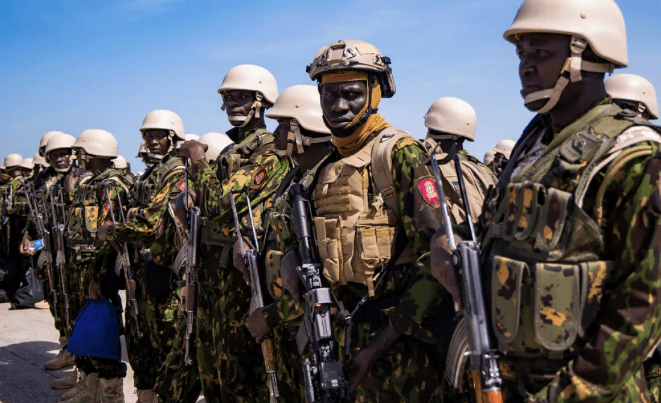
In a landmark decision, Kenya’s High Court has issued an injunction preventing the Directorate of Criminal Investigations (DCI) from accessing the confidential medical records of two former Kenyan military officers who were reportedly recruited to fight for Russia. The Court’s ruling raises pressing questions about privacy, national security, human rights, and the limits of investigation powers under Kenyan law.
The matter came before the High Court following an urgent application by the legal representatives of the two ex‐soldiers. They argued that the medical records in question are deeply personal and protected under both constitutional and statutory privacy and data protection regimes.
The DCI had sought access to those records as part of its investigations into the alleged recruitment of Kenyans to fight in foreign conflicts, specifically with Russia
The High Court granted an interim order temporarily barring the DCI from accessing or otherwise interfering with those records, pending a fuller hearing of the case.
Legal Basis for the Ruling
The decision reflects a balancing act between state powers of investigation and individual rights. Some of the key legal principles involved include:
Right to Privacy
The Kenyan Constitution enshrines privacy as a fundamental right. Any intrusion into private medical records must be justified under law.
Data Protection laws also stipulate how personal data (including health data) may be accessed, stored, or shared.
Due Process and Procedural Safeguards
To access sensitive personal information, authorities must obtain proper judicial authorisation where required, ensure transparency, and limit scope to what is strictly necessary.
National Security vs Human Rights
While the state may have a legitimate interest in investigating foreign recruitment, purported war crimes, or threats to national security, restrictions of individual rights must still comply with constitutional guarantees.
Why It Matters
Privacy Precedent: This ruling could set a precedent for other cases involving medical confidentiality, especially where state investigations are involved.
Human Rights Protections: Reinforces that even in matters of national concern (like alleged foreign military recruitment), the rights of individuals are not automatically tumped.
Investigative Limitations: Signals that investigative agencies must tread carefully when seeking highly sensitive information; overreach could be challenged.
Public Trust: Transparency about legal limits helps maintain public trust in law enforcement and the justice system.
Potential Implications
The DCI may need to frame future applications more carefully, possibly limiting the scope or showing clearer justification for accessing medical data.
Lawyers might use this ruling to mount stronger defenses in other cases where medical or otherwise highly private data is sought by authorities.
The government may consider clarifying or amending policy or legislation to better define when, how, and under what oversight state agencies can access such records.
Challenges
Authorities may argue that in situations involving national security or transnational recruitment, the need for evidence (including medical records) is compelling.
There’s a risk that privacy rules may become so restrictive that legitimate investigations into serious wrongdoing are hampered.
Also, verifying the authenticity and relevance of the records might require them to be accessed; balancing relevance vs confidentiality will likely be central in further proceedings.
What to Watch
Full Hearing Outcome: The substantive case will determine whether the injunction is upheld permanently or modified.
Legal Arguments by Both Sides: How the DCI justifies the need for the records, and how the defence frames privacy, data protection, and constitutional rights.
Precedents Cited: What earlier rulings in Kenya (or regionally) are referenced on medical data confidentiality, war recruitment, etc.
Legislative Responses: Whether Parliament or regulatory bodies make clarifications to prevent ambiguity in such cases.
Conclusion
The High Court’s temporary barn on the DCI accessing the medical records of these former Kenyan military officers is a vital reminder of the tug‐of‐war between state interests and personal rights. While security and investigations are essential, they must operate within the guardrails of law, privacy, and human dignity. As the legal battle continues, Kenya will be watching closely to see how its courts balance these competing priorities.





